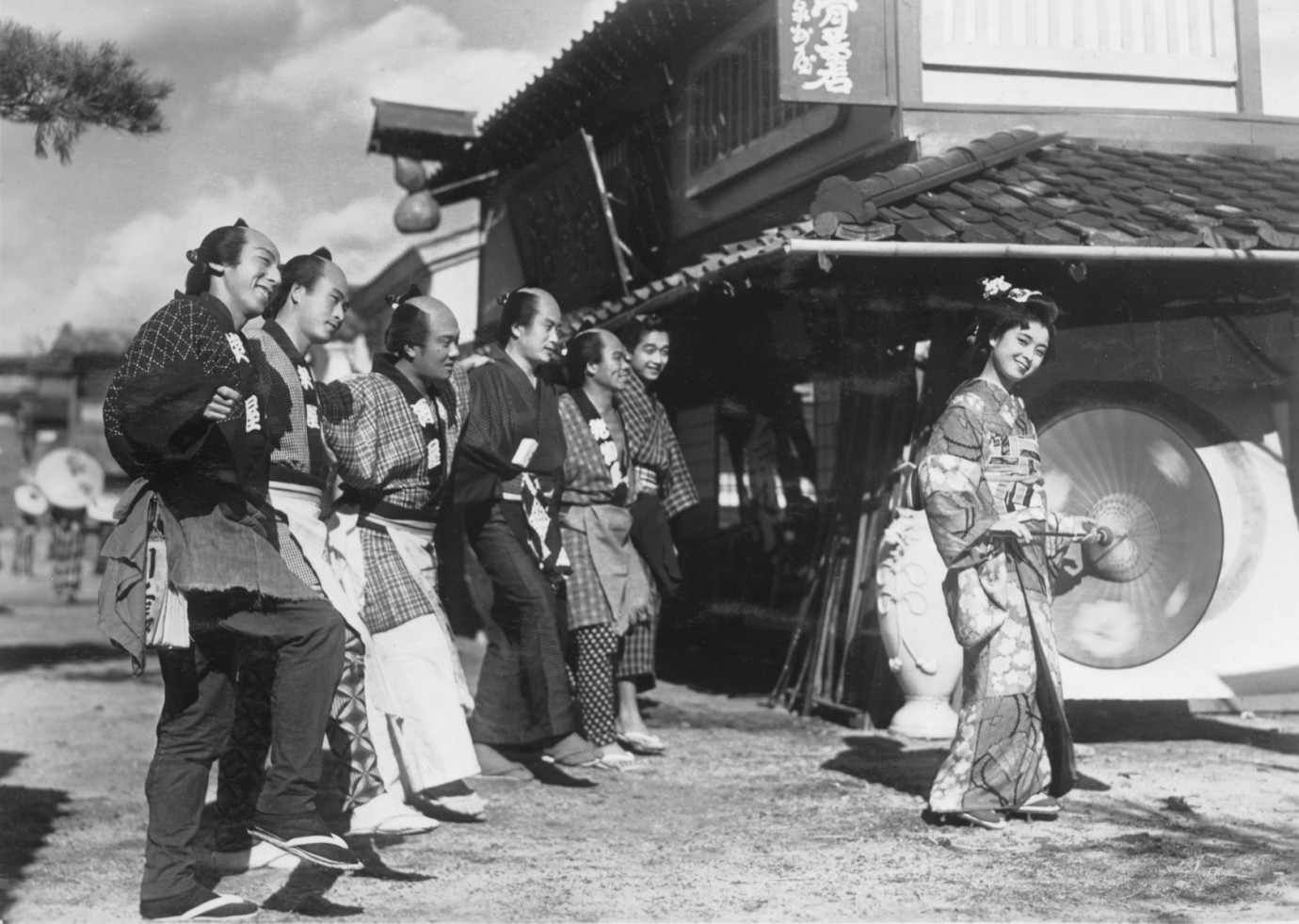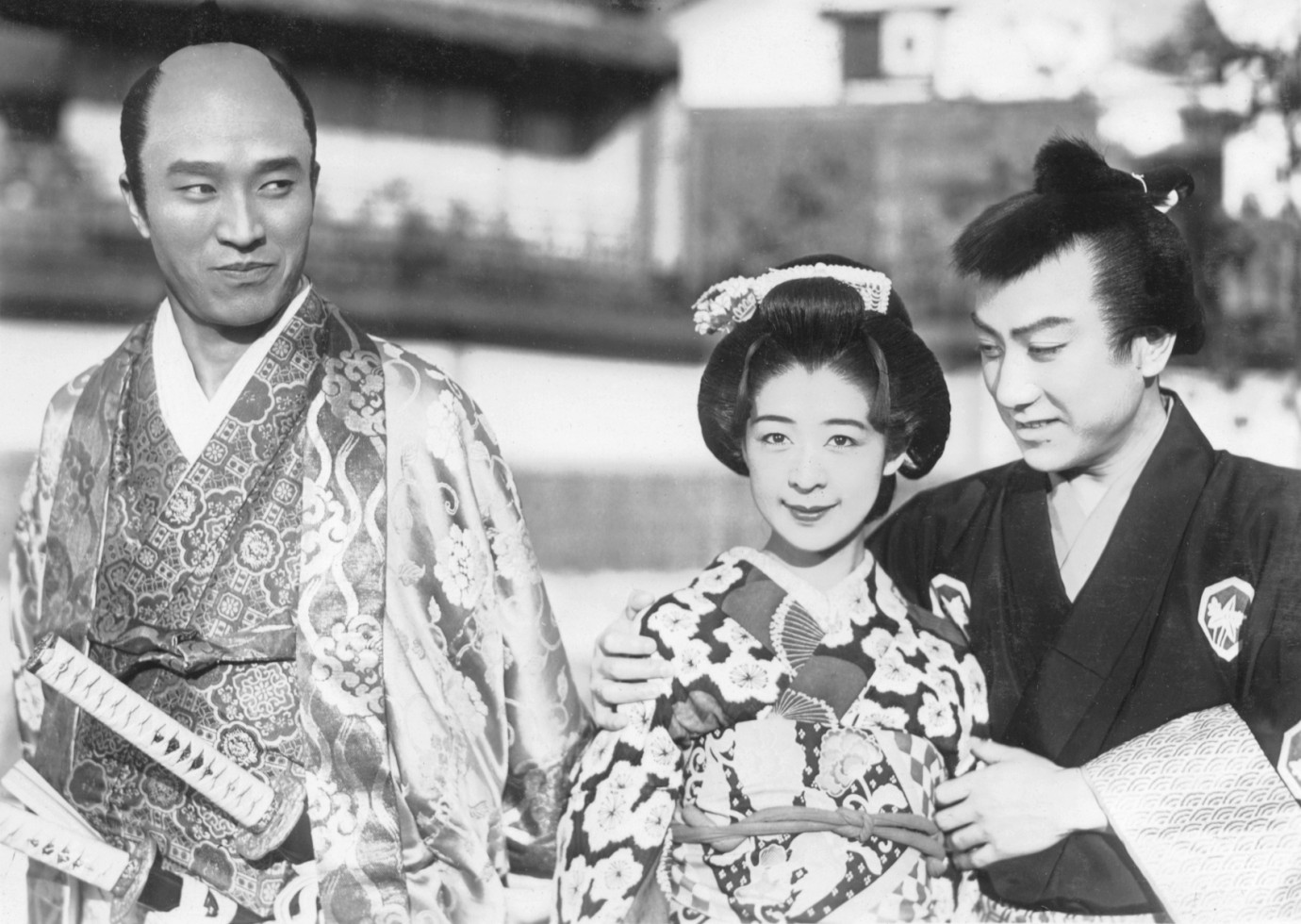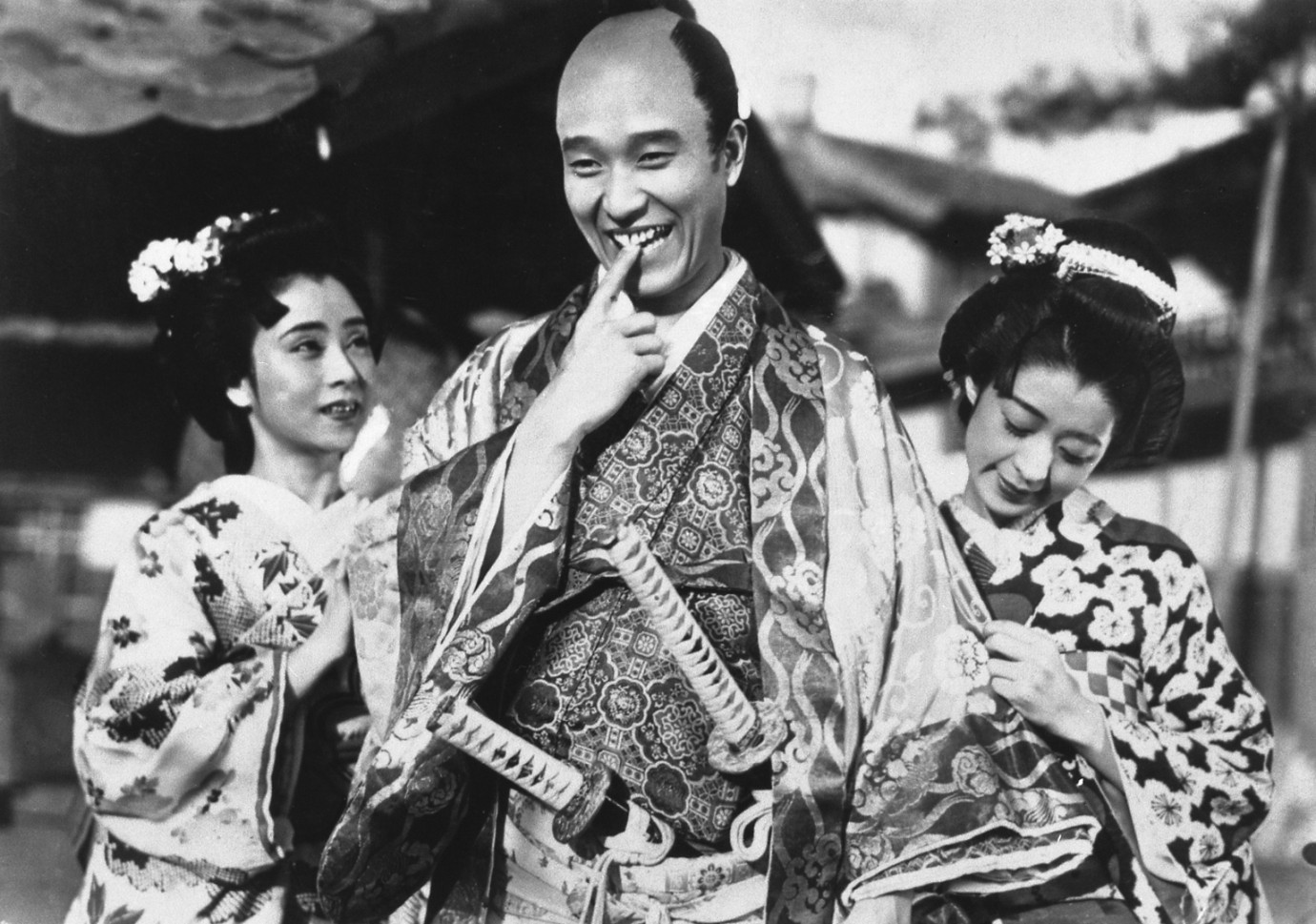Oshidori utagassen
Singing Lovebirds | Die Liederschlacht der Mandarinenten
© 1938 NIKKATSU Corporation, Tokio

Tomiko Hattori (rechts | right)
Oshidori utagassen | Singing Lovebirds | Die Liederschlacht der Mandarinenten by Masahiro Makino
JPN 1939, Retrospective
© 1938 NIKKATSU Corporation, Tokio

Dick Mine, Haruyo Ichikawa, Chiezo Kataoka
Oshidori utagassen | Singing Lovebirds | Die Liederschlacht der Mandarinenten by Masahiro Makino
JPN 1939, Retrospective
© 1938 NIKKATSU Corporation, Tokio

Fujiko Fukamizu, Dick Mine, Haruyo Ichikawa
Oshidori utagassen | Singing Lovebirds | Die Liederschlacht der Mandarinenten by Masahiro Makino
JPN 1939, Retrospective
© 1938 NIKKATSU Corporation, Tokio
Oharu is in love with Reisaburo, a ronin, or dispossessed samurai (‘ronin’). But the young man also has two other admirers, Otomi and Fujio. Oharu’s father, Shimura, makes paper umbrellas and is an enthusiastic amateur antiques collector. A noble antique collector begins wooing Oharu. In cohort with Otomi’s father, he arranges for Shimura to fall into debt buying worthless trinkets. It looks like Oharu may have to give herself to the blackguard to pay off the debt … Oshidori utagassen is a musical that has as its motif the interplay of light and shadow. ‘The wonder of true love brings a glorious eternal light,’ sings the young heroine, ‘In the darkest hours of night I need not fear naught.’ The film is wrapped in a radiant gleam. Only temporary clouds darken the scenery. The director Masahiro Makino was deemed the ‘Busby Berkeley of Japan,’ and his ‘samurai musical’ shows clear Hollywood influences, complete with a sword fight choreographed like a ballet. This is an analogy to the stark black and white of the painted umbrellas that provides a visual rhythm for ‘singin’ in the sunshine.